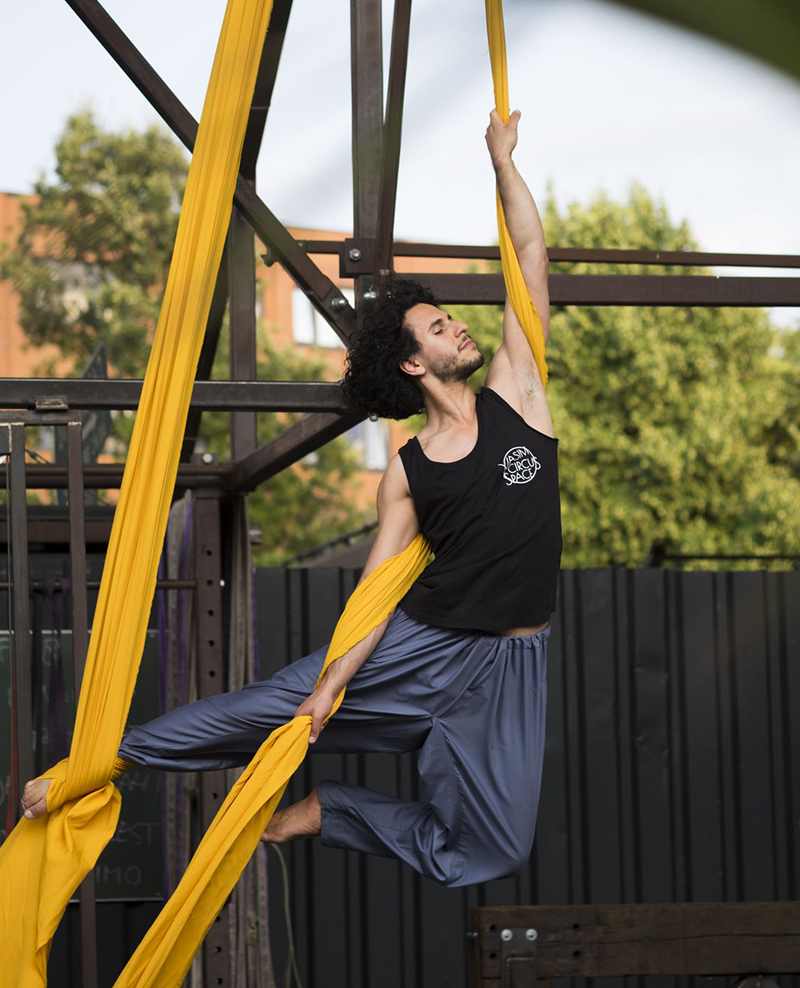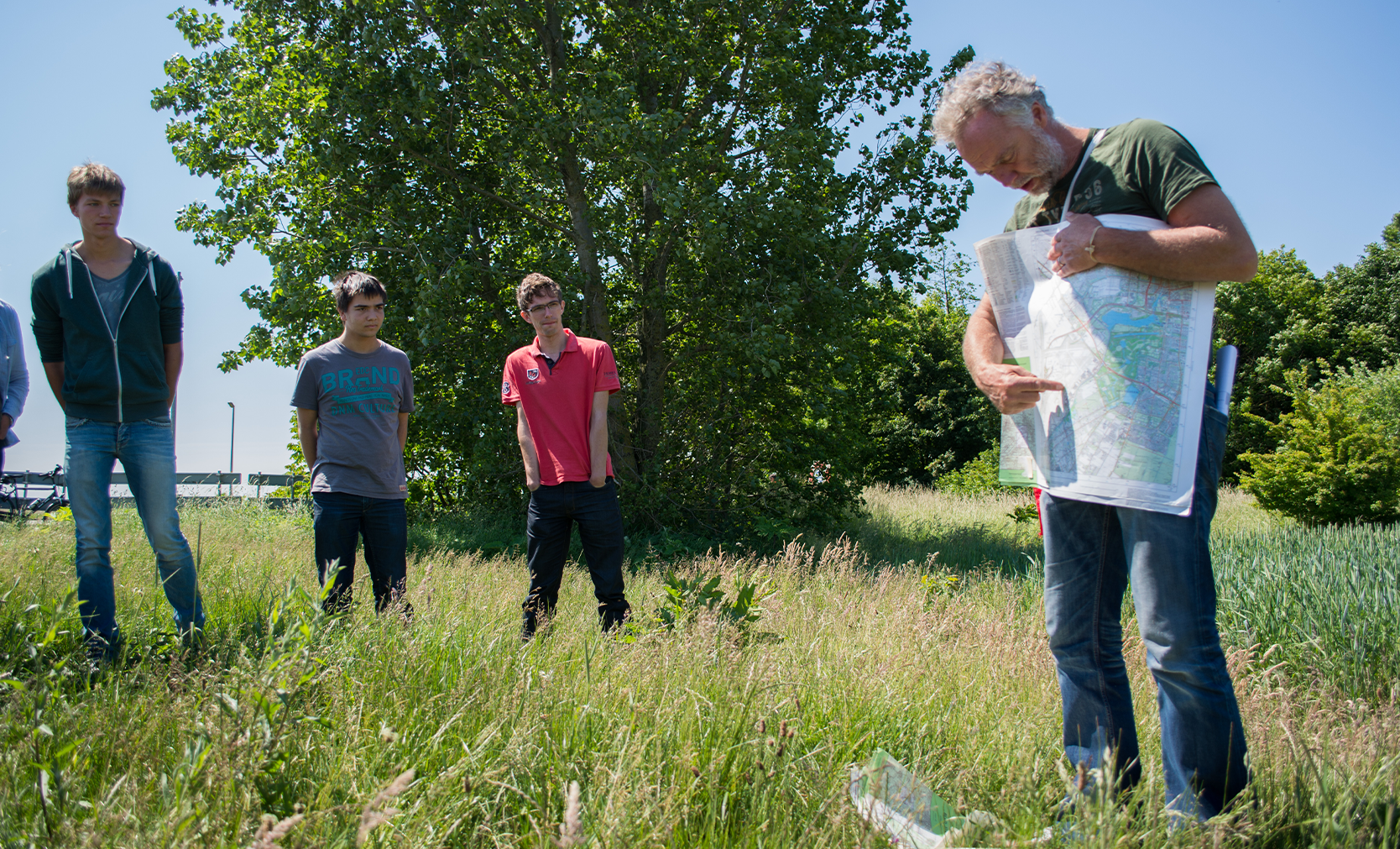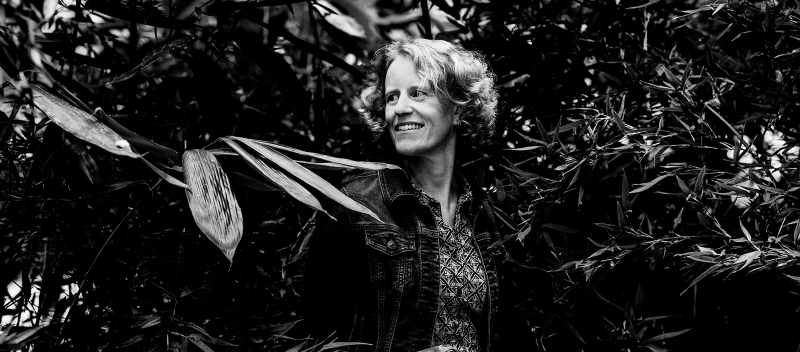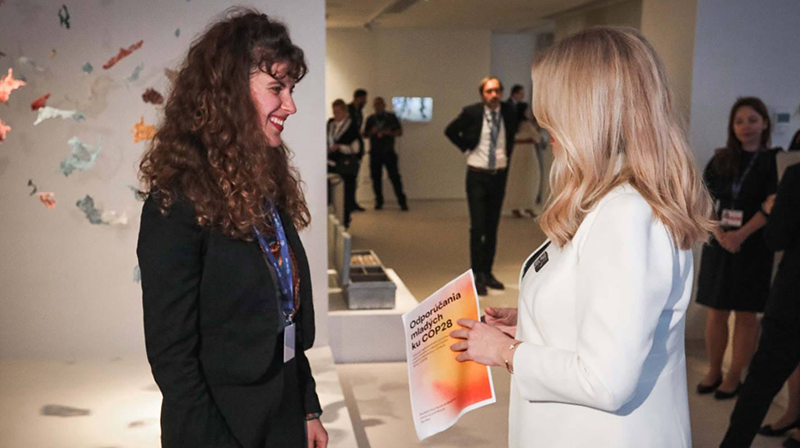Who: Ari Balata
What: teacher of Aerial Silks
Why: she gets a big kick out of the sport
Pay: 25 euros an hour (ranging up to 45 euros)
You’ve got to make ends meet. We can all borrow from Uncle Duo, but some students earn money from unusual side jobs. Like Ari Balata, a Master’s student of Medical Biotechnology. Ari teaches Aerial Silks at the circus in Nijmegen.
‘It was love at first sight, ha-ha. And I have a fear of heights, just imagine! The first time I hung in the air in a cloth, I was reviewing all my life choices. Why am I doing this, actually? But when I got back down, I felt really ecstatic. Aerial Silks is a sport or art form in which you perform a dance with lengths of cloth of one or two metres. The lengths of cloth hang in a large hall or perhaps from a tree. The dancer poses, climbs and performs ‘drops’. This involves particular costumes, choreography and music. The friction between your body and the cloth keeps you up in the air. The danger of an uncontrolled fall is very small. The cloth feels like a strong arm around you; it never lets you go. It’s less dangerous than it might look. In fact you have to watch out for the opposite risk, of getting stuck in a knot that’s too tight.
‘I teach Aerial Silks every Monday in Nijmegen. I help my pupils work on their strength, fitness, suppleness, building up their vertigo tolerance and conditioning their skin. The skin needs some resilience. I am much less ticklish these days! In the end the cloth almost becomes an extension of yourself. You have to learn not to grasp the cloth but to put your hands around it in a kind of stranglehold. My pupils are generally very happy: it’s an outlet for their creativity.
The cloth feels like a strong arm around you: it never lets you go
The height activates a kind of survival instinct, which gives you a real kick. Pupils sometimes laugh hysterically after a good drop, because it releases so much serotonin. It is a sport that feels like play. And that’s a feeling that you sometimes lose as you get older. I teach both beginners and advanced pupils between the age of 8 and 46. Everyone can learn this!’

 Photo Jetske Adams
Photo Jetske Adams 

